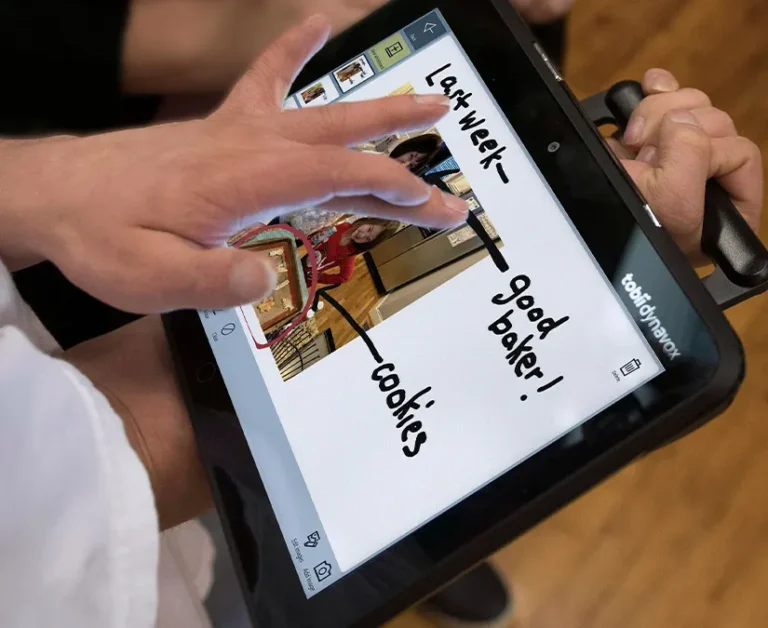
Aphasia is a language disorder that affects how you communicate. It is caused by damage to the language centers of the brain, usually in the left side of the brain, that control understanding, speaking, and using signed languages.
Aphasia does not make you less smart or cause problems with the way you think. However, it may affect your ability to communicate your thoughts easily. Aphasia may also make it hard for you to understand, read, or write.
Aphasia can affect people in different ways, and no two people will have the same changes or recovery. The severity and recovery of aphasia depend on a number of things—including the cause, the extent of damage to the brain, family support, and treatment.
Signs of Aphasia
Aphasia can lead to trouble communicating, understanding language, reading, and writing.
Communicating
You may find that you go through one or several of these experiences:
- You cannot think of the words that you want to say—or you are trying to find words that are “on the tip of your tongue.”
- You say the wrong word. Sometimes, you may say something related in meaning (like “fish” instead of “chicken”) or in sound (like “art” instead of “arm”). Sometimes, you might use a word that is not related in meaning or in sound (like “radio” for “ball”).
- You switch sounds in words. For example, you say “wish dasher” for “dishwasher.”
- You make new words—like “thratble”—that do not have meaning (either by themselves or together in sentences with real words) to other people.
- You repeat common words or phrases.
- You have a hard time saying sentences. You may find it easier to say single words.
Understanding Spoken or Signed Language
You may have trouble doing any or all of the following tasks:
- Recognizing an object by its name. For example, if someone asks you for a fork, you may give them a spoon.
- Following directions.
- Understanding what your partner is communicating, especially if they are going fast or you’re not familiar with the topic.
- Understanding when multiple people are talking or when there are a lot of distractions around.
- Understanding language that is not straightforward. Some examples of such language include jokes, puns, sarcasm, and phrases like “better late than never.”
- Recognizing the meanings behind words.
Reading and Writing
You may have trouble
- Reading signs, forms, books, and computer screens;
- Spelling and putting words together to form sentences; and
- Using numbers or doing math. For example, it may be hard to tell time, count money, or add and subtract.
Tips for communicating with a person who has Aphasia
These tips may make it easier for you to understand and talk with others. Share these tips with your family and friends.
To help me understand, do these things:
- Get my attention before you start talking.
- Keep your voice at a normal level. You do not need to talk louder unless I ask you to.
- Keep the words you use simple but adult. Don’t “talk down” to me.
- Slow down.
- Use short sentences. Repeat key words that you want me to understand.
- Use pictures, gestures, writing, and facial expressions. I may understand those better than words sometimes.
- Use “yes” and “no” questions to offer simple options and to make sure that you understand my message. Say my messages back to me, as needed, so I can tell you if you have understood me correctly
- Give me choices instead of asking an open-ended question. For example, “Do you want to watch TV or go to the movies?” instead of “What should we do this afternoon?”
To help me communicate my thoughts, do these things:
- Give me time.
- Watch my body language and my gestures.
- Try not to finish my sentences for me.
- Ask me to draw, write, point, or gesture when I am having trouble.
- Let me make mistakes. I may not be able to say everything perfectly all the time. The important thing is that we get our messages across.
- Let me do things for myself. I may need to try a few times. Help me only when I ask for it.
- Getting rid of distractions (such as turning off the TV or the radio) may help me communicate and understand better.
Source: https://www.asha.org/public/speech/disorders/aphasia/



